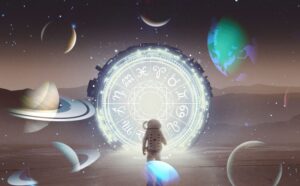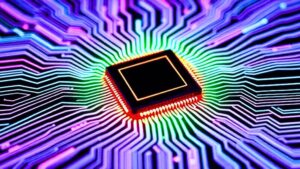Estimated Reading Time: 6 min.
Understanding the role of black holes in the evolution of the universe is one of the most exciting and mysterious areas of cosmology. In the previous articles of this series, we examined the basic properties of black holes, their internal structures, and their effects on space-time. In our first article, titled “Can Black Holes Consume the Entire Universe“, we discussed the general properties and effects of black holes on the universe. Then, in our articles titled “What’s Inside Black Holes? Singularity and the Information Paradox” and “The Effects of Black Holes on Time and Space: Relativity and Spaghettification” we focused on the internal structures of black holes and their effects on space-time. Now, we will focus on “primordial black holes,” which may have formed in the early universe, and how they may have contributed to the evolution of the universe.
Primordial Black Holes: Mysterious Remnants of the Early Universe (Detailed Explanation):
Primordial black holes are hypothetical black holes that may have formed shortly after the Big Bang, when the universe was extremely dense and hot. Unlike black holes formed by the collapse of stars, primordial black holes may have formed through processes such as density fluctuations or phase transitions in the early universe.
- Scientific Language:
- The formation of primordial black holes provides important clues about the conditions of the early universe. The masses of these black holes can range from the Planck mass to supermassive black holes.
- Phase transitions of the early universe, such as the transition from quark-gluon plasma to hadrons, may have triggered the formation of primordial black holes by causing density fluctuations.

Effects of Primordial Black Holes on the Evolution of the Universe:
Primordial black holes are thought to have played various roles in the evolution of the universe:
- Dark Matter Candidates:
- Primordial black holes may have formed some or all of the dark matter, which makes up a large part of the universe but cannot be directly observed. This offers a new way to explain dark matter.
- The role of primordial black holes as dark matter candidates is being investigated through gravitational lensing and gravitational wave observations.
- Galaxy Formation:
- Primordial black holes may have triggered galaxy formation in the early universe. The gravitational pull of these black holes may have accelerated the formation of galaxies by bringing together gas and dust clouds.
- The presence of supermassive black holes at the center of galaxies is an observation that supports the role of primordial black holes in galaxy formation.
- Expansion of the Universe:
- According to some theories, primordial black holes may have affected the expansion rate of the universe. Research on the effect of black holes on the expansion of the universe can help us understand the future fate of the universe.
Detection and Research of Primordial Black Holes:
Although the existence of primordial black holes has not yet been definitively proven, scientists are trying to detect these mysterious objects through various methods:
- Gravitational Lensing:
- The gravitational lensing effect of primordial black holes can allow them to be detected by distorting the image of objects behind them. This can be especially effective in detecting small mass primordial black holes.
- Gravitational Waves:
- Mergers of primordial black holes can allow them to be detected by emitting gravitational waves. Gravitational wave observatories such as LIGO and Virgo are used to detect such mergers.
- Hawking Radiation:
- Small primordial black holes can be detected by emitting Hawking radiation. This radiation is inversely proportional to the mass of the black hole, so small black holes emit more radiation.
Conclusion:
Primordial black holes may be an important key to unraveling the mystery of the early universe. The existence and effects of these black holes can help us understand the evolution of the universe and the fundamental laws of physics.







